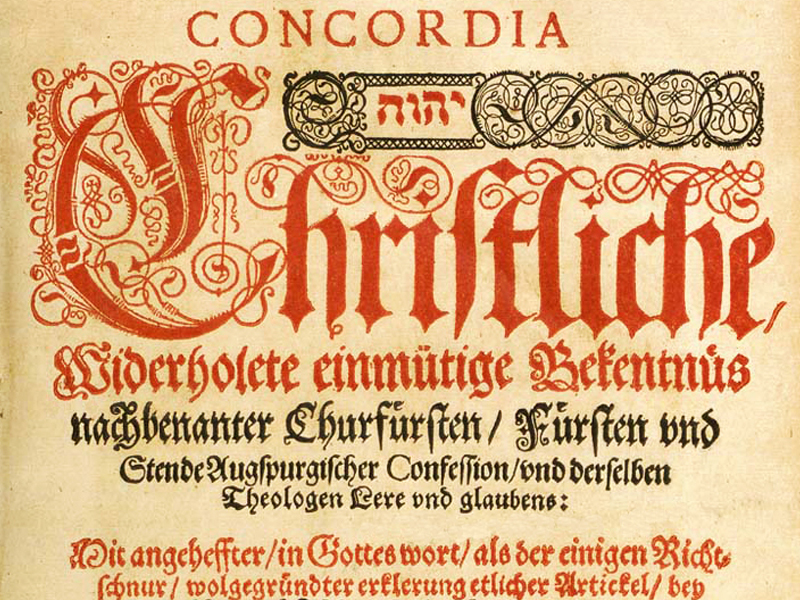by Rev. Matthew Zickler

During the Christmas season, the call for charity rings every time we step out of a store into the din of the bells of the Salvation Army. If you’re like me, you feel a pang of guilt every time you walk by those bell ringers and don’t contribute at least a dollar to the cause. For us as Christians in particular, that pang of conscience comes because we know that our Lord Jesus has been most charitable to us. He gave up all that He had, the riches of the Kingdom of Heaven, and lived on earth with nowhere to lay His head, so that He might ultimately sacrifice His very life that we would be forgiven of our sins, and inherit the eternal riches of His Kingdom through His resurrection. That is truly the greatest charity that ever has been, ever could be, and ever will be.
But as we reflect on this charity in the Advent and Christmas seasons, and as we reflect on this Gospel that we celebrate in the birth of our Lord, we are reminded of the gift of the Gospel itself. We are reminded of the gift that came out of the Reformation: the promise that we receive these blessings by the work of Jesus alone, without any merit or worthiness in us. And as we reflect on the Reformation, something many might not know is that charity played a key role in the Reformation itself. It may not be the concept of charity itself as we know it today, but its Latin root: caritas, had a major role in shaping the thought of the Reformers. At the time before the Reformation the Roman Catholic divine, St. Thomas Aquinas, had said that the faith that saves is that faith which is formed by love, or in the Latin, faith formed by caritas. The Reformers understood how problematic this understanding was, so in the Apology (or defense) of the Augsburg Confession, they described how the Roman Catholic commentators would apply this idea of “faith formed by love” to the Scriptures. Specifically the Reformers said, “they always add the correction that [Scriptural passages about faith] should be understood in reference to ‘faith formed by love.’ Here they do not add the correction: We need the faith that we are accounted righteous because of Christ, the propitiator. Thus our opponents exclude Christ from justification and teach only the righteousness of the law.” (Ap IV, 221)
That gets to the heart of this, doesn’t it? When the rubber meets the road, what “faith formed by love” really means is that faith alone isn’t enough for salvation, but that the faith that we have must be added to by doing acts of charity for those in need in order for us to be saved. Now that isn’t to say we shouldn’t do good works. Of course we should. We are called as Christians to do so. But, if you know Luther’s story, you know how that teaching—that good works of charity save us—caused him despair. And it should do the same to all of us. After all, when have we done enough charity to earn heaven? When are our good works good enough? The answer: never. “All our righteous deeds are like filthy rags.” (Isaiah 64:6). But Christ has been perfectly charitable on our behalf.
So as you celebrate the charity of Christ this Christmas give thanks that He has freely done all for you. And feel free to be charitable as well.
The Rev. Matthew Zickler is pastor of Grace Lutheran Church, Western Springs, IL.